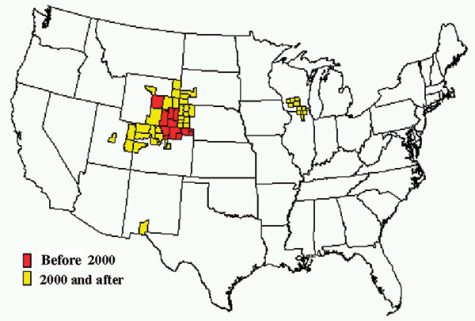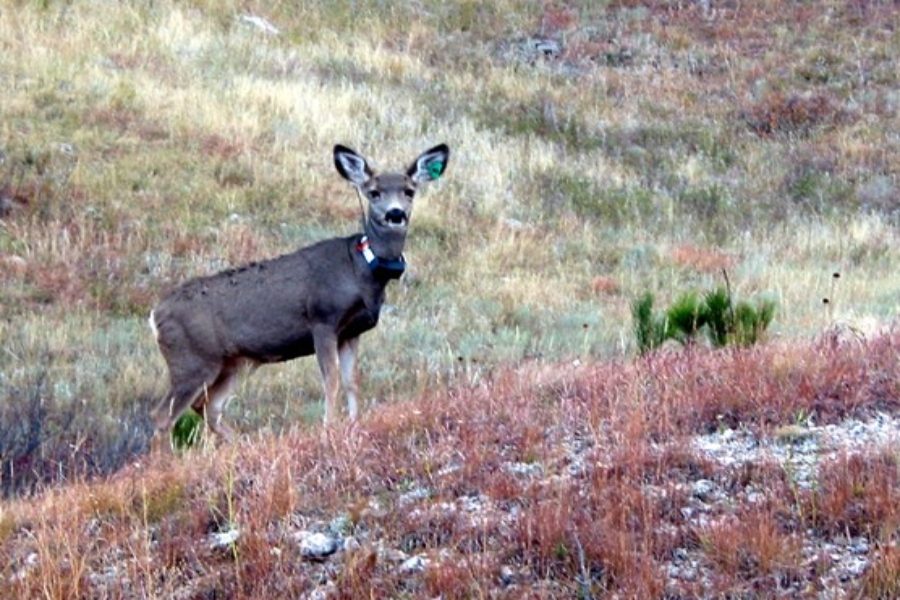CWD puts deer, possibly hunters in danger
IMAGE / National Park Service
Researchers are placing chronic wasting disease collars and tags on deer found to have the disease to help track its spread.
Chronic wasting disease, the colloquially known “zombie deer” disease, has been found in 24 states and two Canadian provinces.
It could possibly affect humans.
CWD is a transmittable spongiform brain disease found in deer, elk, reindeer, and moose. It comes from an abnormal protein that’s collected in an animal’s brain cells.
The North Carolina Wildlife Commission said that the brain cells eventually burst and leave spaces in the brain. This gives it a sponge-like appearance.
The symptoms of CWD are excessive salivation, loss of appetite, weight loss, extreme thirst, teeth grinding, poor posture, and drooping ears.
CWD can spread through saliva, urine, and feces, as well as with deer migration.
This spreads the disease faster than humans can cure it.
Ms. Amy Graham, health teacher and a hunter, believes game hunting could be changed.
“The majority of the cases are found in penned animals,” Graham said. “It may increase some regulations on hunting.”
It takes months — sometimes even years — for symptoms to show, resulting in hunters not knowing if their deer have the disease or not.

Chronic wasting disease has spread throughout many parts of the United States, and some cases are now being reported in Michigan.
Sophomore Gavin Burton said it can be scary to face as a hunter.
“I feel very disturbed by this as I hunt every so often,” Burton said. “But as long as we be careful around the deer we hunt and check the meat, we should be OK.”
It could potentially slow the rate of deer hunting in the state, which isn’t good for Michigan since it’s a large deer-hunting state.
The Centers for Disease Control and Prevention fear the disease could spread to humans through infected meat and contact with CWD-carrying deer.
Sophomore Sarah Bouchard is concerned for her future.
“I don’t have a lot of knowledge about it,” Bouchard said. “What I do know is that people need to be careful because they (deer) do go into farms and eat crops.”
At the moment, there are no vaccines or treatments for CWD.
The CDC warns hunters against contacting infected deer and hunting in areas that have many cases of the disease.
So far there’s been no reported cases in humans, but there’s still a possibility.
Michigan State University placed collars on infected deer in hopes of tracking and curbing the disease.
Mr. Jonathan Trudeau, an MSU student, spoke about the goal of his research in The Detroit News.
“Our goal is to produce new techniques and data that will help Michigan DNR reduce the spread of CWD,” Trudeau said,

Birthday: March 14, 2002
Hobbies/Interests: Drawing, and playing guitar, ukulele, and piano.
Favorite Quote: "No I can't marry you, I have...











